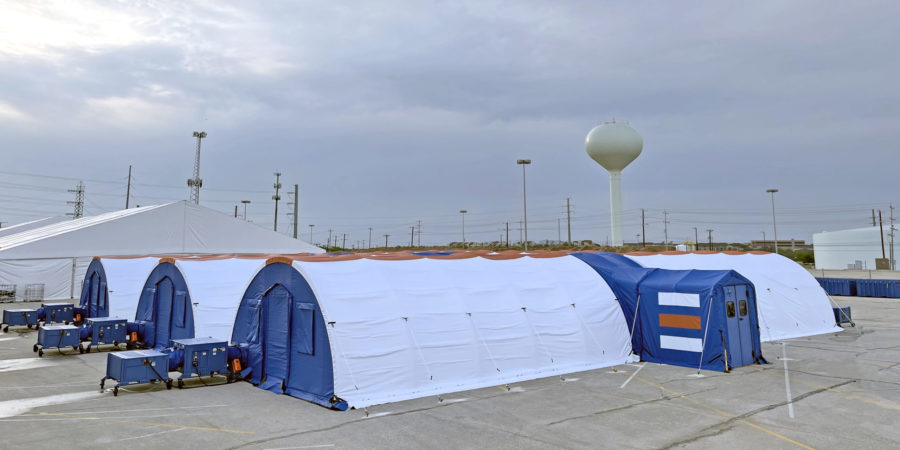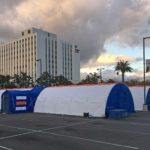The Delta Variant Pushes the U.S. Healthcare System to Its Limit
The ongoing need for additional ICU space, staff shortages, low vaccination rates, and a high number of COVID-19 related deaths are forcing hospitals to respond by rationing healthcare. Oh, and “winter is coming” (quite figuratively and literally).
Amid the ongoing battle to save patients infected with COVID-19, hospitals are not only running out of ICU beds, but dealing with staffing shortages, forcing many hospitals to consider or implement Crisis Standards of Care (CSC). In other words, rationing health care – providing life-saving equipment, staff, and medicine to patients most likely to survive.
Long feared as an indicator of when the healthcare system is at its breaking point, Alaska and Idaho have activated statewide crisis standards of care. Hospitals and healthcare providers in Montana have put crisis standards of care into effect. The state of Hawaii released health workers from liability should they have to ration care. Arizona and New Mexico declared crisis standards of care earlier in the pandemic. Despite a push to create a nationwide crisis standards of care policy, it has been largely left to the state health departments. “As with all disaster planning, people don’t really think about the need for such things until it hits you in the face,” explained Jerrilyn Jones, Arkansas state health department’s medical director for the health and preparedness and response branch.
In states without crisis standards of care policies, this responsibility falls onto hospitals to create their own CSC plans. Needless to say, the crisis standards of care vary widely by state.
While an American now dies of COVID-19 every 43 seconds, and despite the repeated calls to get vaccinated, the CDC is reporting that the vaccination rate for people receiving the first dose of a COVID-19 vaccine is the lowest it has been in two months. All the while, the U.S. is experiencing more than 2,000 COVID-19 related deaths per day – a level not seen since July (during the “summer surge”).
The new seven-day average for new COVID-19 cases is 130,790 cases a day – a decline of more than 20,000 cases a day, according to data from Johns Hopkins University. States initially affected by the quick-spreading Delta variant are driving that downward trend, including Florida and Mississippi. The CDC is predicting new daily COVID-19 hospitalizations will decrease over the next four weeks, for the first time since the June 23 forecast.
Despite the number of new COVID-19 cases being on the decline for the last week, health experts are saying it is not the time to let our guards down. The number of hospitalizations lag behind new diagnoses, especially with the Delta-influenced wave still surging through the unvaccinated U.S. population. “Unfortunately, it can absolutely get worse than where it is at,” stated Dr. Nathan Allen, the medical ethicist for Billings Clinic and its department chair for emergency medicine.
Vaccination rates need to get “higher if we want to create a backstop against the kind of spread we’ve seen this past summer,” explained Dr. Scott Gottlieb, former FDA Commissioner. According to Gottlieb, the Delta coronavirus variant has the potential to be the country’s last major wave of infection, but that is assuming other variants don’t emerge with the capability of re-infecting people with immunity offered by prior infection and vaccination.
“Winter is coming” is a euphemistic warning for preparation and vigilance, used by HBO’s popular “Game of Thrones” series. With winter and cold weather quickly approaching, health experts are keeping a close eye on the Northeast, especially as kids go back to school and people go back to work. The fact that COVID-19 likes to spread in cold weather makes Gottlieb believe “we’re going to see infections start to pick up here (in the Northeast).”
In comparison, the decline in new COVID-19 cases this past week is still 11 times higher than two and a half months ago. Across the country, nearly 80% of ICU beds are being used.
For hospitals needing temperature-controlled and military-grade hospital surge tents, medical tents with negative pressure rooms, or field hospitals designed to protect patients and hospital staff this winter, please contact BLU-MED Response Systems® today using the following:
Phone: 888-680-7181 (Toll Free)
425-739-2795 (US)
Email: inforeq@blu-med.com
Web: Complete our online contact form


